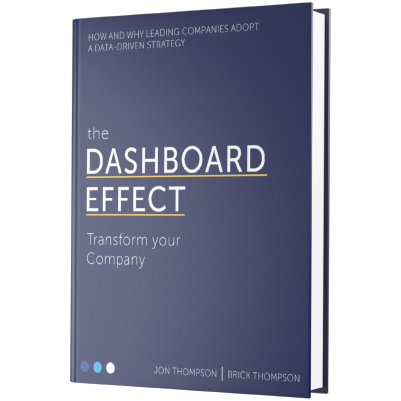“I’m looking for a company’s ‘data mobilizer’...that individual with buy-in from the top, who understands the value of BI, and who has the ability to build consensus.” - Kate Eberle, Director of Consulting, Blue Margin
The champions of data initiatives range from CEOs and CIOs, to Directors of FP&A or Senior Applications Development Managers. The titles vary, but the core skillsets don’t. We call these individuals “data mobilizers.” They typically understand the value of surfacing key performance data to key personnel and view data visibility as a strategic pillar for moving a business forward.
Data project executive sponsors
A few key roles are generally well-positioned to own BI initiatives. Consider the following observations from our experience working with 200+ clients:
- CFOs often have good instincts about data governance and quality. They can ensure solid financial reporting but sometimes don’t attach as strongly to operational reporting across the company. (link to Carter Freeman article)
- CIO and CTOs often have experience with BI’s underlying architecture and infrastructure and the technical resources on hand to direct the work. However, BI initiatives can end up in an IT bottleneck alongside their other concurrent work streams. When the CIO embraces the higher-level goal of getting the entire company to data-driven, they can be an ideal mobilizer for BI projects.
- COOs are uniquely positioned to understand the value of connecting operational measures and KPIs to business outcomes. They understand how the gears of the company mesh and can be a great mobilizer when they understand how to use dashboards to put strategy into action (i.e., through alignment and team-accountability around a goal).
In our podcast episode, Who Should Own BI in Your Company, Brick Thompson, Blue Margin CEO, and Kate Eberle, Director of Consulting, discuss the importance of identifying the right data mobilizers, and the benefits and challenges different functional leaders bring.
Blue Margin looks for mobilizers early in our partnerships and when we find them, it’s a recipe for success. Where do your data mobilizers sit today?

